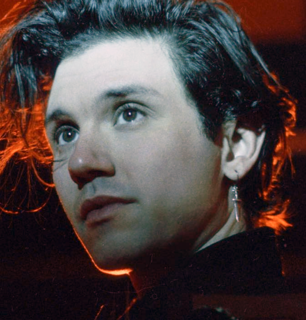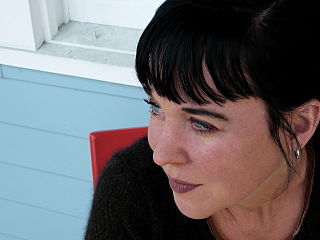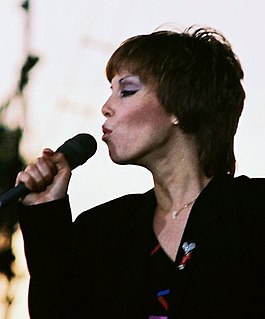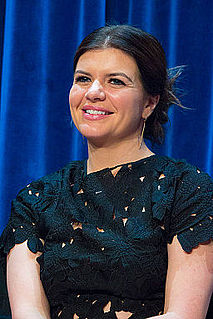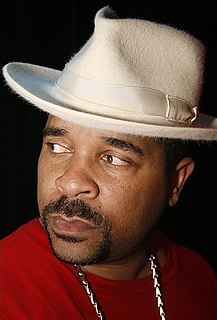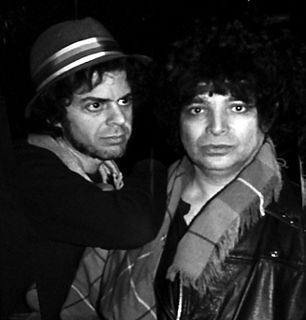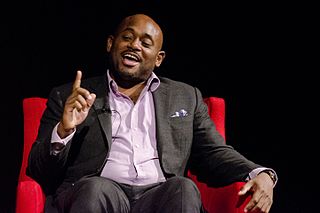A Quote by DJ Premier
The radio stations strayed away from the raw hip-hop that they were playing in the early 1990s. We were like, 'All this watered down stuff is dominating the airwaves. We should make a record to make fun of that' and Guru's like, 'Let's call it 'Mass Appeal.''
Related Quotes
In this time, we incorporate money and media, and it's split up like apartheid, where when you say "hip-hop," you think just rap records. People might have forgot about all the other elements in hip-hop. Now we're back out there again, trying to get people back to the fifth element, the knowledge. To know to respect the whole culture, especially to you radio stations that claim to be hip-hop and you're not, because if you was a hip-hop radio station, why do you just play one aspect of hip-hop and rap, which is gangsta rap?
To be honest, the search for a label was really weird, because some of the labels that you wouldn't expect to care about stuff like radio formats were the ones that did care. They were like, 'Yeah, we love this record, but what are we going to play on the radio?' And I was like, 'You don't have bands on the radio.'
I call it "being interrupted by success." We had done The Soft Bulletin, which came out in 1999, and we knew we that were gonna make another record before too long. But in between this, we were still in this mode of kind of just - not re-creating what we could be, but kind of doing different things. For the longest time in the Flaming Lips we were like, "Make a record, go on tour. Come back, make another record," and you know, I think, frankly, we were kind of like, "There's more to life than just recording records and going on tour."
I love the way I make hip-hop and I refuse to make pop-rap. I don't refuse to make mainstream music, which is why I did a soul record. There was no reason why soul music couldn't get played on the radio and I still wanted to have a relationship with my record label. So, I really enjoyed doing the Strickland Banks album. But there's no point in my trying to release underground hip-hop music on a major label. That part of my talent, or part of my art, had to live somewhere else and feature film was the perfect vehicle for it.
The more money you spend, the more you need to make back, and the more pressure there is to appeal to everyone - which to the studio means that the specificity and uniqueness must be watered down. But I think mass audiences like things that are more specific and tend to have a voice, like 'Napoleon Dynamite' or 'Superbad.'
My definition of hip hop is taking elements from many other spheres of music to make hip hop. Whether it be breakbeat, whether it be the groove and grunt of James Brown or the pickle-pop sounds of Kraftwerk or Yellow Magic Orchestra, hip hop is also part of what they call hip-house now, or trip hop, or even parts of drum n' bass.
I've been producing records, and as early as my late teens, early 20s, I put out a hip-hop record and then the Ringside stuff. You know, I just feel like I want to spend these years realizing all of my ambitions. I feel like we live in an age in which you can chase your dreams with focus and a vision.
In hip-hop, what you have is you have a lot of formulaic-type bands or rappers that come up. They saw something on the radio, and they want to mimic that formula. And that's just boring. I don't wanna record something just to make money; I want to record something to enjoy it and have fun because I'm a music lover.
Artists should re-emphasize performance and de-emphasize recording. You always make more money if you have a healthy performing life than you will if you have even a moderately healthy recording life. Don't make recording the most important thing you do. Make performing the most important thing you do, and then you can make recordings and sell them at your shows, because record labels aren't going to be around to help you get on the radio stations, and the radio stations probably aren't going to play you anyway.



